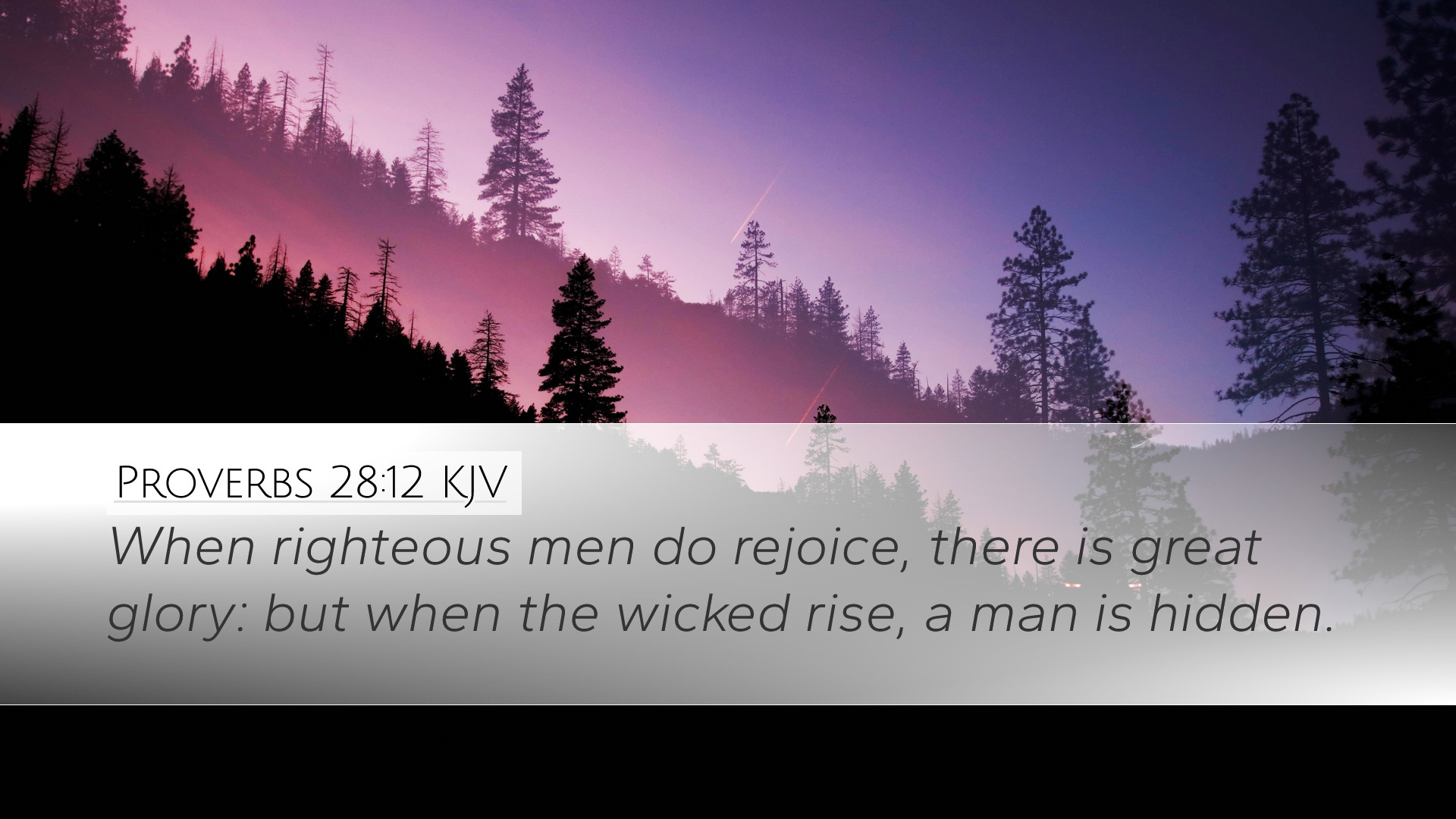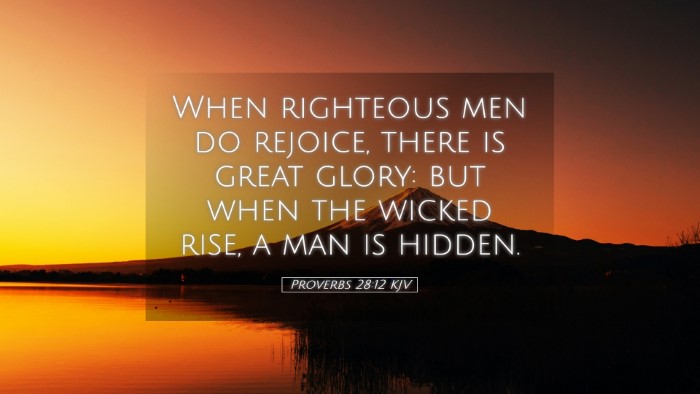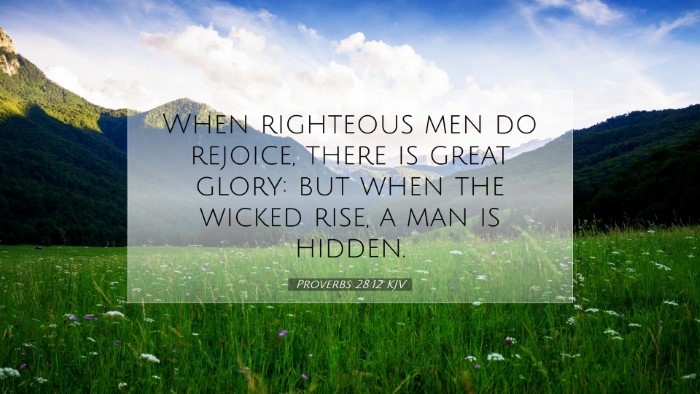Proverbs 28:12 (KJV): "When righteous men do rejoice, there is great glory: but when the wicked rise, a man is hidden."
Commentary Overview
This verse provides a profound insight into the relationship between righteousness, justice, and societal wellbeing. The dualistic nature of the statement illustrates the contrasting outcomes of righteous and wicked behaviors. Drawing from various public domain commentaries, we can gather valuable interpretations of this scripture.
Insights from Matthew Henry
Matthew Henry emphasizes the joy and glory that accompany the righteousness of individuals. He notes, "The rejoicing of the righteous is based on the justice and mercy of God." This joy is not only personal but communal, leading to a sense of glory that permeates society.
Henry further elaborates that when wickedness prevails, it creates an environment of fear and despair. He writes, "In times when wickedness is exalted, the righteous often find themselves troubled, obscured, or hidden by the calamities that arise." This provides a dual perspective, showing both the state of the righteous in their exaltation and the consequences of wickedness on an interpersonal level.
Insights from Albert Barnes
Albert Barnes presents an analytical approach, focusing on the implications of the rise of the righteous versus the wicked. He states, "Great glory attends the righteous; it is their inheritance to flourish and shine in the paths of integrity." The verse suggests that righteousness brings forth celebration within the community.
Barnes contrasts this with the rise of the wicked, which leads to societal chaos. He states, "The ascent of evil often results in secrecy and repression of good." According to Barnes, the wicked's rise leads the righteous to act cautiously, highlighting the tension between good and evil in human dynamics.
Insights from Adam Clarke
Adam Clarke highlights the metaphorical dimensions within this verse. He explains that the "great glory" refers to not just joy but a significant acknowledgment of righteousness which encourages and influences others. Clarke emphasizes, "The presence of the righteous elevates the collective consciousness and stirs hope among the people."
Clarke further emphasizes the descent of the wicked in society, pointing out the nuances of human behavior when sin takes its hold. He asserts that "The hidden man" referenced in the latter part signifies how righteousness often becomes obscure amid prevailing injustices, thereby indicating the need for a persistent pursuit of good, for the hidden will eventually reveal truth.
Theological Implications
The contrast set forth in Proverbs 28:12 invites deep theological reflection concerning the nature of righteousness and wickedness. There are essential themes to explore:
- Righteousness as a Source of Joy: The joy experienced by the righteous is significant. It represents an alignment with divine principles and brings honor not only to themselves but to God.
- Wickedness and Its Consequences: The elevation of lack of integrity clearly leads to societal instability. This highlights the importance of moral standards and their influence on community wellbeing.
- Community Dynamics: Both the righteous joy and the wicked rise significantly affect societal structures. The interplay between individual morals and communal health is pivotal in understanding this verse.
Practical Applications for Today
For pastors, students, and scholars, this verse serves as an encouragement to strive for personal and communal righteousness:
- Pursuit of Integrity: Leaders and individuals must pursue a life of integrity and transparency that glorifies God and uplifts others.
- Awareness of Wickedness: There is a necessity to remain vigilant about the rise of wickedness within society to better protect the righteous and the vulnerable.
- Encouragement to the Righteous: The text serves as an encouragement that joy and glory are awaiting those who uphold righteousness, which can, in turn, foster a more profound commitment to living out those values.
Conclusion
Proverbs 28:12 interlaces the themes of joy and obscurity, bringing to light the realities faced by the righteous amid a world that may sometimes prioritize wickedness. The insights gained from esteemed commentaries provide a rich tapestry of understanding that can enhance the study and application of this verse. Let this verse be a reminder of the transformative power of righteousness in a world longing for hope and light.


